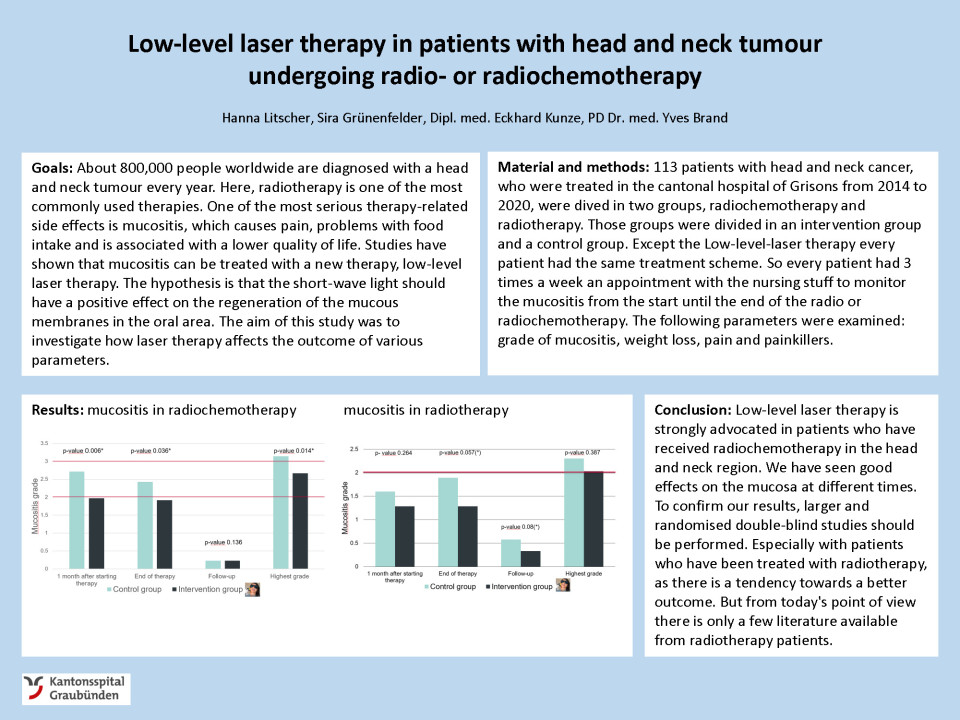Goals
Studies showed that mucositis, the most common side effect of radiotherapy or radiochemotherapy for head and neck tumors, can be treated with a low level laser. [1] This is a retrospective study to examine the hypothesis that the short-wavelength light has a beneficial effect on the mucosa in the oral region.
Material and Methods
113 patients were divided into two groups based on whether they were treated with radiotherapy or radiochemotherapy. Within this groups, an intervention group which has been treated with a laser, either from Raditec Medical AG, Bellikon or THOR Photomedicine Ltd and a control group were defined. The study examined the following parameters: degree of mucositis, weight progression, pain and analgetic medication.
Results
The statistical analysis proved that there were no significant differences between the groups, with one exception (the irradiation dose from THOR Photomedicine Ltd compared to the control group), in terms of age, noxious agents, irradiation dose and tumour stages, which allowed the groups to be compared.
The results have shown significantly (p< 0.05) lower mucositis scores at the beginning (1,97) and at the end of the therapy (1,92) in the radiochemotherapy intervention group compared to the control group at the beginning (2,71) and at the end (2,43). The highest degree of mucositis reached also the significance level, 2,67 in the intervention group and 3,14 in the control group. The weight loss in the follow-up was also significantly less in the intervention group (6%) compared to the control group (11%).
In the radiotherapy group the values did not reach the significance level, but a tendency towards an improved outcome is clearly evident.
Conclusion
In conclusion, low-level laser therapy is strongly advocated in patients who have received radiochemotherapy in the head and neck region. To further validate the results, a larger, prospective double-blinded study should be performed.

